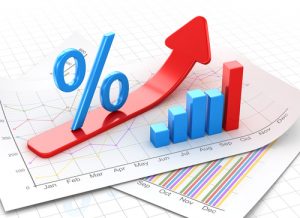 Mortgage rates that hit historic lows a couple of months ago are gradually rising.
Mortgage rates that hit historic lows a couple of months ago are gradually rising.
This week's Freddie Mac Primary Mortgage Market Survey (PMMS) showed a 30-year fixed-rate mortgage at 3.17%, an increase since last week when it averaged 3.09%. A year ago at this time, the 30-year FRM averaged 3.50%.
Freddie Mac's Chief Economist Sam Khater explains how the rates, up a half percentage point since January's all-time low, could disproportionately affect some demographics of homeowner and aspiring homeowner.
Increasing rates are "leaving potential homebuyers with less purchasing power. Unfortunately, this has disproportionately affected the low end of the market, where supply is the slimmest,” Khater said.
"During the course of the pandemic, ‘home’ has become more important than ever," Khater said. "As a result, strong purchase demand continues—but buyers also outnumber the sellers."
Realtor.com's Chief Economist Danielle Hale advises potential homebuyers to work the numbers and understand what mortgage rate increases mean for their target home price and monthly budgets so they can prepare for shifts and adjust their searches as needed, because, she says, those rates will keep inching up for the foreseeable future.
"Moving forward, the general uptrend in mortgage rates is expected to continue as economic growth draws investors into stocks and out of bonds," Hale said.
Black Knight, a mortgage technology and data provider, reported today that the rising rates pushed the number of high-quality refinance candidates down to approximately 11.1 million, the smallest the population has been since a year ago Friday (Mar. 26, 2020).
Those 11.1 million candidates represent an aggregate potential monthly savings of some $3 billion.
As Black Knight's analysts put it, that is "nothing to sneeze at," and that sort of savings could serve as another burst of stimulus into the economy (to the tune of some $36 billion annually).
For refi candidates who still have the incentive, they, on average, could save $277 monthly by refinancing, Black Knight reported.
"Drilling a bit deeper into the data, we see that there are still more than 2 million homeowners who could save at least $400 monthly, roughly 1.2 million of whom could save an average of $745 each month by refinancing—even at today’s "high" rates.

 theMReport.com Your trusted source for mortgage banking news
theMReport.com Your trusted source for mortgage banking news








